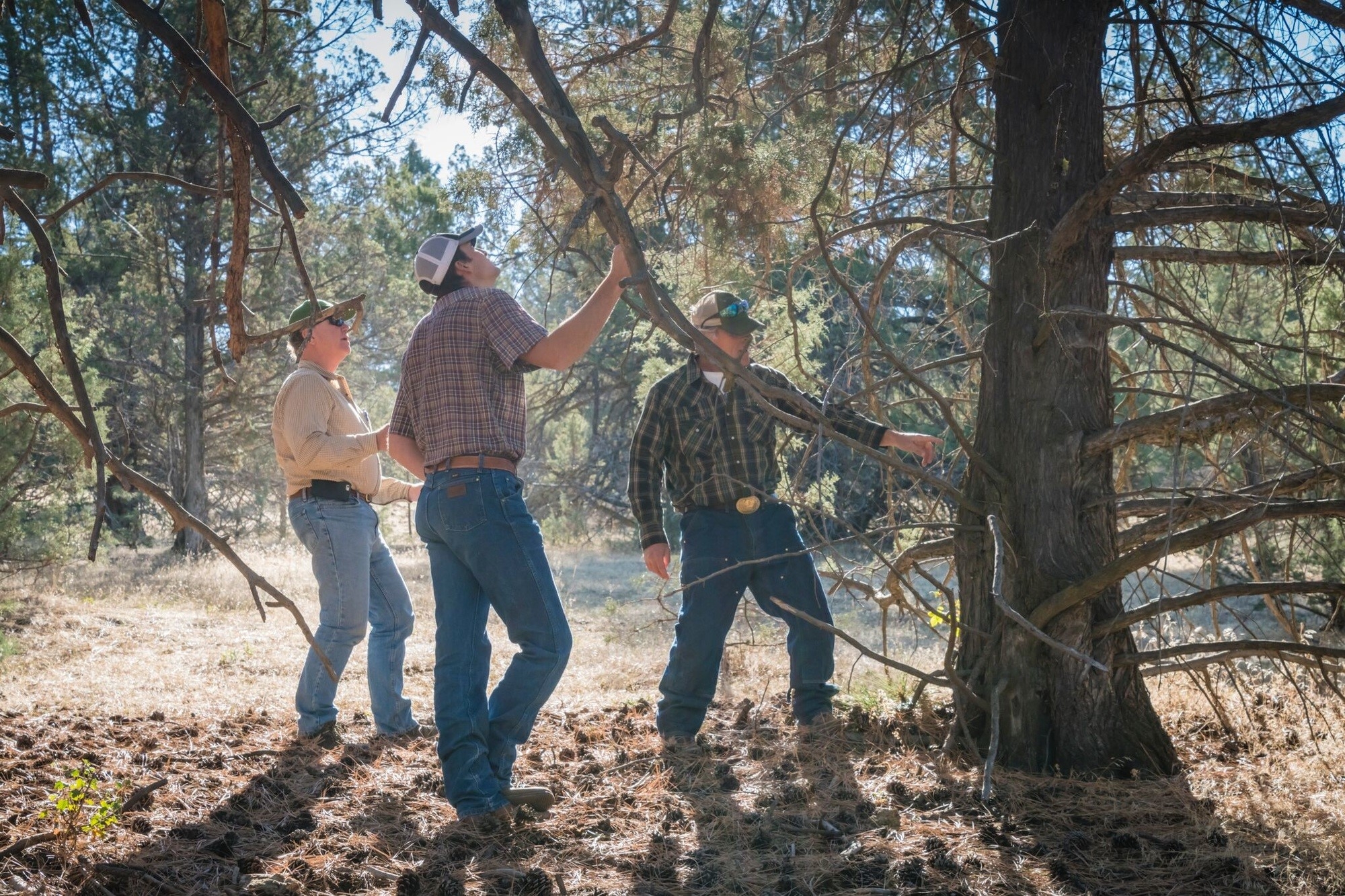Share this article! Among the remote beauty of the Blue Mountains in Eastern Oregon, Grant County is engaging in a significant experiment in the “new natural resource economy.” This term, coined by University of Oregon researchers*, Michael Hibbard and Susan Lorie, describes a way communities “can help diversify rural economies while also enhancing environmental, social … Read more
Among the remote beauty of the Blue Mountains in Eastern Oregon, Grant County is engaging in a significant experiment in the “new natural resource economy.” This term, coined by University of Oregon researchers*, Michael Hibbard and Susan Lorie, describes a way communities “can help diversify rural economies while also enhancing environmental, social and cultural assets.” This desire to innovate came out of a need to take back the land from the encroaching Western Juniper tree.
While native to Oregon, juniper took over 9 million acres of rangelands in Eastern Oregon, drinking up much of the ever-important water in the already dry landscape. The Ritter Land Management Team (RLMT), a unique collaboration between around 30 landowners, wanted to find a solution. An analysis found that the establishment of a juniper sawmill could provide 21 years of good lumber and good jobs while also restoring the watersheds and streamflows, thereby improving grazing lands and reducing the risk of forest fires.
The Ritter sawmill is one of the newest projects supported by Sustainable Northwest through funding from the state-run Western Juniper Alliance and The Oregon Community Foundation, which, thanks to Sustainable Northwest, were able to respond quickly to this need. Other juniper projects around the state are in Burns, Fossil, Spray, John Day, Dayville, and La Pine.
“I think [the success] mainly has to do with the people involved. We have a very cohesive group of landowners and they are all committed to the wise and careful use of our natural resources,” says RLMT Executive Director, Patti Hudson, of the Ritter Project. Dylan Kruse from Sustainable Northwest believes that there’s something larger that comes from public-private partnerships like this. “The linchpin is bringing people to the table,” he says. “People who normally wouldn’t be talking to each other are united around an issue they care about. It gives us an opportunity to talk about more controversial issues. I think the Ritter group is emblematic of that.”
*Drs. Hibbard and Lorie’s research funding was provided by The Oregon Community Foundation, the Meyer Memorial Trust, and The Ford Family Foundation.
Brand stories are paid content articles that allow Oregon Business advertisers to share news about their organizations and engage with readers on business and public policy issues. The stories are produced in house by the Oregon Business marketing department. For more information, contact associate publisher Courtney Kutzman.





